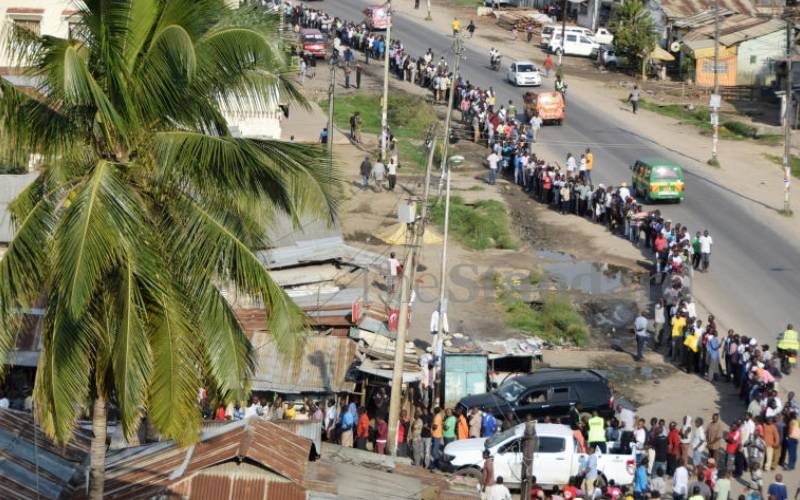×
The Standard e-Paper
Join Thousands Daily

Voters queue at Ziwa la Ng'ombe Primary School in Mombasa County, August 8, 2017. [Gideon Maundu, Standard]
In exactly 13 months’ time, Kenyans will be heading to the ballot to decide whom to entrust with the management of the economy. In many ways, what is usually on the ballot is never the individual candidates or the political vehicles they use to propel them into power. It still baffles me how we fail to appreciate this as a citizenry when it comes to exercising the power of the ballot.